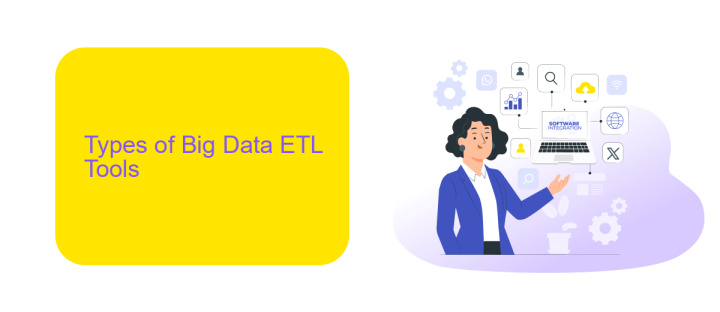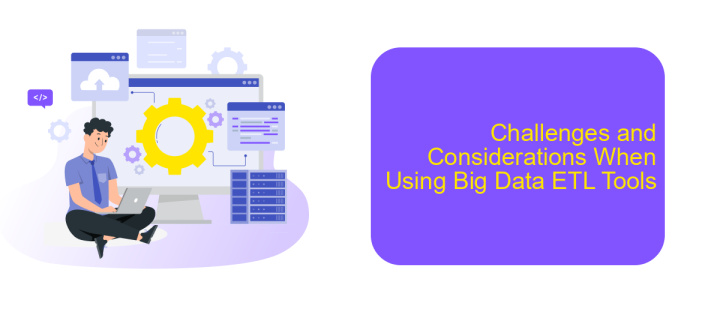Big Data ETL Tools
Big Data ETL (Extract, Transform, Load) tools are essential for managing and processing vast amounts of data efficiently. These tools help organizations extract data from various sources, transform it into a usable format, and load it into data warehouses or other storage systems. In this article, we will explore the leading Big Data ETL tools, their features, and how they can benefit your data management strategy.
Introduction to Big Data ETL
Big Data ETL (Extract, Transform, Load) is a critical process for managing and analyzing large volumes of data. This process involves extracting data from various sources, transforming it into a suitable format, and loading it into a data warehouse or other storage systems. ETL tools are essential for ensuring data consistency, quality, and accessibility, enabling organizations to make informed decisions based on accurate data insights.
- Extraction: The initial phase where data is collected from multiple sources, including databases, APIs, and flat files.
- Transformation: The process of cleaning, enriching, and formatting the data to meet specific requirements and standards.
- Loading: The final phase where the transformed data is loaded into a target system, such as a data warehouse or a data lake.
Effective ETL tools, such as ApiX-Drive, facilitate seamless integration and automation of data workflows. ApiX-Drive allows businesses to connect various applications and services, streamlining the data extraction and transformation processes. By leveraging such tools, organizations can enhance their data management capabilities and drive better business outcomes.
Types of Big Data ETL Tools

Big Data ETL tools can be broadly categorized into on-premises, cloud-based, and hybrid solutions. On-premises ETL tools are installed and run on local servers, providing full control over data and processes. They are ideal for organizations with strict data security and compliance requirements. Examples include Apache Nifi and Talend. Cloud-based ETL tools, such as AWS Glue and Google Cloud Dataflow, offer scalability and flexibility, allowing businesses to handle large volumes of data without investing heavily in infrastructure. These tools are managed by cloud service providers, reducing the need for in-house maintenance and support.
Hybrid ETL tools combine the advantages of both on-premises and cloud-based solutions, enabling seamless data integration across different environments. They are suitable for organizations with diverse data sources and complex workflows. ApiX-Drive is an example of a service that facilitates integrations, allowing users to connect various applications and automate data flows effortlessly. Such services are particularly useful for businesses looking to streamline their ETL processes without extensive technical expertise. By leveraging these tools, organizations can efficiently manage and analyze their big data, driving better decision-making and operational efficiency.
Features and Benefits of Using Big Data ETL Tools

Big Data ETL tools are essential for managing and processing large volumes of data efficiently. These tools help in extracting data from various sources, transforming it into a usable format, and loading it into a target system for analysis.
- Scalability: ETL tools can handle massive datasets, making them ideal for big data applications.
- Automation: They automate repetitive tasks, reducing manual effort and minimizing errors.
- Data Integration: Tools like ApiX-Drive facilitate seamless integration with multiple data sources, ensuring comprehensive data collection.
- Data Quality: They offer data cleansing and validation features to maintain high data quality.
- Real-time Processing: Many ETL tools support real-time data processing, enabling timely insights.
Using Big Data ETL tools, organizations can streamline their data workflows, improve data accuracy, and gain actionable insights faster. With services like ApiX-Drive, setting up integrations between various data sources becomes effortless, further enhancing the efficiency of ETL processes.
Challenges and Considerations When Using Big Data ETL Tools

When leveraging Big Data ETL tools, organizations often face a myriad of challenges and considerations. One of the primary concerns is the complexity of data integration, as data is sourced from various platforms and formats, requiring robust transformation capabilities to ensure consistency and accuracy.
Scalability is another critical factor. As data volumes grow exponentially, ETL tools must efficiently handle large datasets without compromising performance. This necessitates the use of scalable architectures and advanced processing techniques.
- Data Quality: Ensuring the accuracy and consistency of data during extraction and transformation.
- Performance: Maintaining high performance and low latency during data processing.
- Security: Protecting sensitive data throughout the ETL process.
- Integration: Seamlessly integrating with various data sources and destinations.
Tools like ApiX-Drive can simplify the integration process by offering pre-built connectors and automation features, making it easier to manage data flows between disparate systems. By addressing these challenges, organizations can maximize the value derived from their Big Data initiatives.


Conclusion
In conclusion, Big Data ETL tools play a crucial role in managing and processing vast amounts of data efficiently. These tools streamline the extraction, transformation, and loading of data, enabling businesses to derive valuable insights and make informed decisions. The right ETL tool can significantly enhance data quality, reduce processing time, and improve overall operational efficiency.
Moreover, integrating ETL tools with other services can further optimize data workflows. For instance, using platforms like ApiX-Drive can simplify the integration process, allowing seamless data transfer between various applications and services. This not only reduces the complexity of managing multiple data sources but also ensures that data is consistently updated and readily available for analysis. As the landscape of big data continues to evolve, leveraging advanced ETL tools and integration services will be essential for staying competitive and driving innovation.
FAQ
What is Big Data ETL?
Why is ETL important in Big Data?
What are some common challenges in Big Data ETL?
How can automation improve Big Data ETL processes?
What are the key features to look for in a Big Data ETL tool?
Routine tasks take a lot of time from employees? Do they burn out, do not have enough working day for the main duties and important things? Do you understand that the only way out of this situation in modern realities is automation? Try Apix-Drive for free and make sure that the online connector in 5 minutes of setting up integration will remove a significant part of the routine from your life and free up time for you and your employees.

